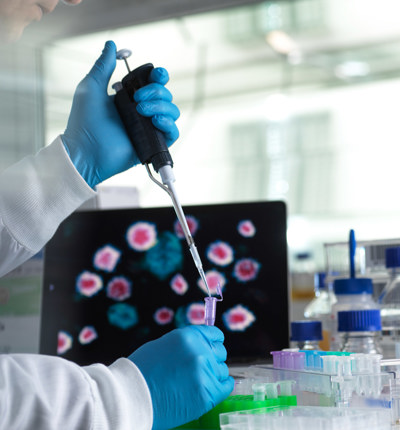
The important role of patient safety in the urgent search for an effective COVID-19 vaccine
On International Clinical Trials Day Gene Matthews, partner at Leigh Day, who specialises in clinical trial claims, and Nancy Williams barrister at 5 Pump Court Chambers, discuss the role of patient safety in the search for a Coronavirus vaccine
Posted on 20 May 2020
On the 23rd April 2020, the UK began what was described by the government as the ‘largest randomised clinical trial in the world.’ This trial will test for a potential vaccine for coronavirus disease 2019 (COVID-19), the disease caused by severe acute respiratory syndrome coronavirus 2 (SARS-CoV-2). The Recovery trial reportedly recruited almost 1,000 patients in two weeks and will be conducted in 132 different NHS hospitals. Recruitment was conducted in 15 days and it is anticipated that there will be additional participants in the trial. The trial is being co-ordinated by researchers at the University of Oxford. The trial will begin by testing the following treatments:
- Lopinavir-Ritonavir (commonly used to treat HIV)
- Low-dose Dexamethasone (a type of steroid, which is used in a range of conditions typically to reduce inflammation).
- Hydroxychloroquine (related to an anti-malarial drug)
- Azithromycin (a commonly used antibiotic)
- Tocilizumab (an anti-inflammatory treatment given by injection)
There are currently two other national trials that are taking place – Principle and Remap-Cap. The former is limited in its scope. It is targeting individuals aged 50 to 64 with underlying health conditions and those aged 65 years and above without any health concerns. Recruitment is taking place through GP surgeries. The trial is also designed to test the efficacy of potential treatments as they are identified. The trial has commenced by testing hydroxychloroquine. The latter is an adaptive trial that is operating across 14 countries and involves patients with suspected or proven COVID-19.
To facilitate the search for a vaccine, the UK has accelerated the process for authorisation of clinical trials. Before a clinical trial can take place, authorisation must be obtained from both the Medicines and Healthcare products Regulatory Agency (MHRA) and an ethics committee. During the current pandemic, the MHRA and the Health Research Authority (HRA) have put into place an expedited authorisation procedures so that authorisation can take place within days as opposed to weeks or months.
This begs the important question – does the expedited authorisation process respect the rights of patients participating in COVID-19 clinical trials?
The authorisation of a clinical trial involves an ethical review. This is essentially a risk- benefit analysis in relation to patient safety. In other words, the risk to the safety of trial participants is balanced against the collective benefit arising from the development of a treatment.
Generally, the use of known treatments without established efficacy to treat a condition poses a real risk to patient safety because it is unknown whether use of the treatment will improve patient health or have the opposite effect. Similarly, when a drug is in its developmental stage the unknown effects of the drug may pose a high risk to patient safety. The use of these types of treatments is primarily supported on theoretical and/or speculative grounds. For example, within the context of COVID-19, there has been some buzz generated within the scientific community regarding the use of hydroxychloroquine to treat the virus, although there are divergent views regarding its efficacy as a potential treatment for the virus due to the lack of clinical data supporting the same. Nevertheless, at this stage, it is fair to say that in relation to the COVID-19 crisis, the prospect of finding a clinically viable cure for the disease appears remote and the risk to patient safety of proposed treatments is unknown.
Notwithstanding concerns regarding the speculative use of treatments and the corresponding risk to patient safety, in exceptional circumstances (such as the present) when confronted with a global health pandemic, there is emphasis on the urgent need to find effective treatments. Therefore, time is of the essence. The balance between patient safety and the collective interest shifts in favour of the collective interest in finding a remedy for the disease. Arguably, the scale of the pandemic and the high mortality rate strongly supports testing unknown treatments. With the pressing need to find effective treatments at the forefront, it raises legitimate concerns about whether individual patient safety is being sacrificed for the collective good.
Ethical review bodies in the UK and the EU involved in the authorisation process for clinical trials have emphasised the fact that notwithstanding the expedited process, applications will be subjected to robust ethical scrutiny and standard ethical principles will be upheld. The HRA has specifically stated that its procedure for expedited review is designed to ensure that the research ethics committee maintains the same profile as before i.e. the same mixture of lay and expert members.
Although the need to find a treatment for COVID-19 may justify placing the emphasis on the public good at the authorisation stage, once the trial is in effect, patient safety must be paramount. An appropriate safeguard is the close monitoring of the trial and a flexible clinical trial design. The directors of the Recovery trial have stated that the trial will be closely monitored and is subject to change depending on the data that is obtained. This periodic reassessment will ensure the ethical and scientific integrity of the trial. It is reassuring that this important safeguard has reportedly been included in the trial design.
It is clear that the procedure for conducting clinical trials will have to adapt to the current circumstances. However, the challenges presented by the pressing need to find effective treatments or a vaccine should not compromise patient safety. It appears that there are mechanisms in place to ensure that ethical standards continue to be maintained during this time. Patient, and volunteer, safety must (even in these most challenging and uncertain times) be at the centre of drug development.


